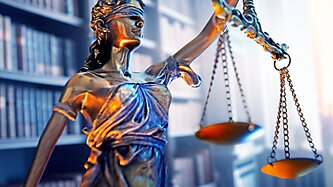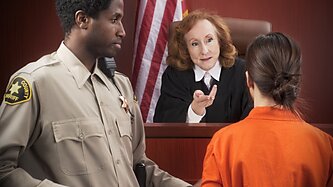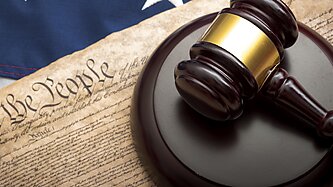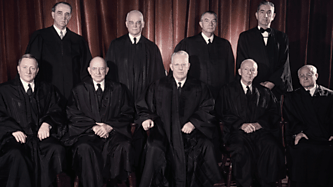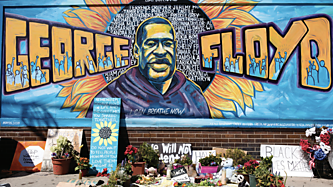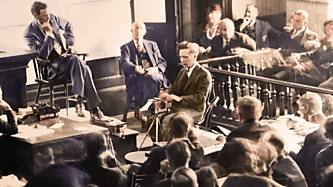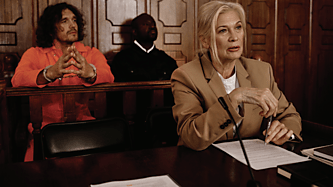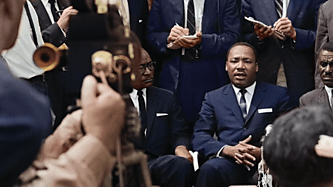module
Criminal Justice, Democracy and Equality
Echos of legal clashes between the Civil Rights Movement and Massive Resistance during the Warren Court era.
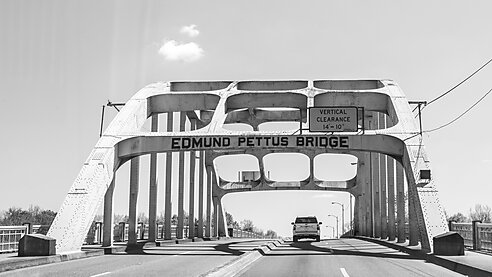
Lessons
Lesson
Criminal Justice, Democracy, and Equality
Persistent Echoes of the Legal Clashes between the Civil Rights Movement and Massive Resistance during the Warren Court Era (1954–1969)
This unit highlights criminal procedure through the lens of civil liberties, civil rights, constitutionalism, and civic participation.
Lesson
The Temper with Which the Law Requires That We Should Proceed to Trial (John Adams)
Students will identify the criminal procedure amendments in the Bill of Rights and discuss their importance in protecting civil rights and liberties.
Lesson
Miranda, Kerner, and Watts (Riot Control versus Provocation)
In this lesson, students will examine the role of Miranda rights in safeguarding individual civil liberties and rights.
Lesson
Civil Rights Contexts for Gideon v. Wainwright and Adequate Representation
Students will analyze the Sixth Amendment’s role in providing adequate representation in racially and politically charged arrest cases, focusing on key civil rights movement court cases.
Lesson
The Warren Court—Civil Rights through Civil Proceedings Reform
Students will delve into the lasting legacies and impacts of the Warren Court’s decisions and discuss to what extent the Court was pivotal in shaping criminal justice reform.
Lesson
Burger, Rehnquist, and Roberts Courts — Police Discretion and Police Reform
This lesson will explore the role of police discretion and qualified immunity considering the Warren Court’s legacy decisions.
Lesson
Witness Misidentification/Coerced Confessions
This lesson examines the 1957 Mallory v. United States decision on due process and federal procedure, addressing custodial interrogation and its ties to Jim Crow abuses.
Lesson
True Crime and the Court of Public Opinion
Students will explore the media’s role in criminal procedure, focusing on the Lindbergh case’s impact on media coverage and evaluating its influence on modern court cases.
Lesson
Mass Incarceration
Students will analyze arguments and data on mass incarceration, review scholarly perspectives, and create infographics to present their own findings and solutions.
Lesson
Prosecutorial Discretion, Progressive Prosecutors, and Prosecutorial Misconduct
Students will analyze and evaluate the extent to which prosecutorial discretion and progressive prosecutors protect and promote the virtue of citizens.
Lesson
Mass Supervision, Probation, Parole, and Excessive Fines
Students will explore the Eighth Amendment’s prohibition against cruel and unusual punishment, focusing on civil liberties and rights related to mass surveillance and how new technologies impact criminal procedure.
Lesson
OpenStax America Government 3e Optional Text Reading
The OpenStax American Government 3e textbook complements unit lessons with suggested chapters, pairing summaries, and an annotation guide, supporting varied curriculum needs and student reading levels.
Lesson
Birmingham Letter Extensions
Utilize Dr. Martin Luther King Jr.‘s Birmingham Letter as an extension to the lessons in this unit.
